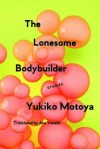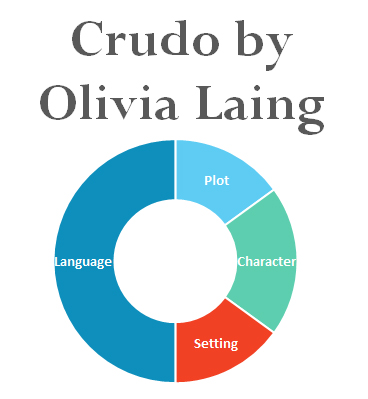The end of the year is finally here, huzzah! While the real world has been busy and stressful my reading life has gone much better. Escapism for the win! 😉
So here’s my yearly list of favorite reads. Just like last year there’s an even mix of romance, other fiction, and non-fiction, and authors from marginalized groups show up in a big way. Let’s jump into it, with the titles listed in reverse alphabetical order by title, just because:
 White Rage: The Unspoken Truth of Our Racial Divide by Carol Anderson
White Rage: The Unspoken Truth of Our Racial Divide by Carol Anderson
This book left me infuriated, shocked, and heart-broken in turns. Court cases may have guaranteed African-Americans equal rights, but this book showed me that they needed to be fought for outside of the courts two and three times over.

Warday by Whitley Strieber and James Kunetka
Suppose the US and the USSR had a nuclear exchange in 1984. What would happen? Where would get targeted and why? What would the days, weeks, months, and years after look like? Strieber and Kunetka dive deep into all of that in this epistolary-esque account of their travels around America some five years after “Warday”. It’s chilling and brings the aftermath of nuclear war to life.

Syncopation by Anna Zabo (Twisted Wishes #1)
An m/m romance with an aromantic protagonist written by a non-binary author, centering on a Queer rock band? Yes, please! Add in some BDSM elements, great characterization, and the best anaphylactic shock I’ve read and I’m in love.

The Lonesome Bodybuilder by Yukiko Motoya, translated by Asa Yoneda
Weird, wonderful short stories that spin out realistic absurdities while examining the role and status of women in Japan. My favorite piece is An Exotic Marriage, a novella about a husband and wife who find themselves resembling each other in more concrete ways than you’d expect.

Invisible: How Young Women with Serious Health Issues Navigate Work, Relationships, and the Pressure to Seem Just Fine by Michele Lent Hirsch
Part memoir, part anecdote, and part research, Invisible does an amazing job looking at women society deems “too young” or “too pretty” to be sick. Own voices for health issues and being queer, it’s full of thoughts and discussions us relatively healthy folk have never even had to think about while being intersectional to the hilt. Maybe the most underrated new release I’ve read this year.

Hello Stranger by Lisa Kleypas (The Ravenels #4)
Historical romance based on the first woman doctor in England is totally my thing. Kleypas’ writing is as solid as ever with an extra dose of suspense and some great story arcs for secondary characters as well as the main couple.

Ghachar Ghochar by Vivek Shanbhag, translated by Srinath Perur
A short book that builds up the story in layers, one chapter at a time. We look into the lives of different members of an Indian family and their rags to riches story… but how did they get all that money so quickly, anyway?

Command and Control: Nuclear Weapons, the Damascus Accident, and the Illusion of Safety by Eric Schlosser
The history of nuclear weapons, which is more like a history of nuclear near-accidents, and a gripping account of an incident at an American missile silo. If you’ve never heard of the Damascus Accident don’t look it up now – let Schlosser guide you through it minute by minute in a great example of narrative nonfiction.

The Chateau by Tiffany Reisz (Original Sinners #9)
A flashback set in the Original Sinners series, The Chateau is great for anyone that’s already in love with Nora, Soren, Kingsley, and the rest of the gang. It’s a gender-flipped and toned down version of The Story of O and includes a killer mind fuck.
 All Passion Spent by Vita Sackville-West
All Passion Spent by Vita Sackville-West
The character work in this classic is just great. Lady Shane’s husband, a prominent politician, has died and her children have gathered to decide what to do with mother. When she proclaims her own wants, maybe for the first time in their lives, the kids have no idea what to make of it.
There we have it, my favorite books of 2018! What was your top read of the year? Are there any new releases you’re anticipating next year?

 In 2012, Sarah Ruhl was a distinguished author and playwright, twice a finalist for the Pulitzer Prize. Max Ritvo, a student in her playwriting class at Yale University, was an exuberant, opinionated, and highly gifted poet. He was also in remission from pediatric cancer.
In 2012, Sarah Ruhl was a distinguished author and playwright, twice a finalist for the Pulitzer Prize. Max Ritvo, a student in her playwriting class at Yale University, was an exuberant, opinionated, and highly gifted poet. He was also in remission from pediatric cancer. How do you imagine trans liberation while living in a cis world? On My Way To Liberation follows a gender nonconforming body moving through the streets of Chicago. From the sex shop to the farmers market, the family dinner table to the bookstore, trans people are everywhere, though often erased. Writing towards a trans future, H. Melt envisions a world where trans people are respected, loved and celebrated every day.
How do you imagine trans liberation while living in a cis world? On My Way To Liberation follows a gender nonconforming body moving through the streets of Chicago. From the sex shop to the farmers market, the family dinner table to the bookstore, trans people are everywhere, though often erased. Writing towards a trans future, H. Melt envisions a world where trans people are respected, loved and celebrated every day. Broadway hotshot Nik Kovalenko is a confirmed bachelor. Ballroom champion Jess Davenport is a bona fide Scrooge. Last year, they shared a midnight kiss at a New Year’s Eve party that made both of them believe—briefly—in the magic of the holiday season. The magic was cut short when Nik went on tour the next day, but he never stopped thinking about that kiss—or Jess.
Broadway hotshot Nik Kovalenko is a confirmed bachelor. Ballroom champion Jess Davenport is a bona fide Scrooge. Last year, they shared a midnight kiss at a New Year’s Eve party that made both of them believe—briefly—in the magic of the holiday season. The magic was cut short when Nik went on tour the next day, but he never stopped thinking about that kiss—or Jess. Kathy is a writer. Kathy is getting married. It’s the summer of 2017 and the whole world is falling apart.
Kathy is a writer. Kathy is getting married. It’s the summer of 2017 and the whole world is falling apart. The main draw here is the writing, and there’s just barely enough plot to keep me interested. We follow the narrator through the summer of 2017 as the book acts as a snapshot of that scary, uncertain time. (We are still in scary, uncertain times, but it’s nice to think at least some of it is past us, don’t you think?) It brought back some vivid memories for me, worded more beautifully than I could ever manage.
The main draw here is the writing, and there’s just barely enough plot to keep me interested. We follow the narrator through the summer of 2017 as the book acts as a snapshot of that scary, uncertain time. (We are still in scary, uncertain times, but it’s nice to think at least some of it is past us, don’t you think?) It brought back some vivid memories for me, worded more beautifully than I could ever manage. Malmö, Sweden, 1996
Malmö, Sweden, 1996 Anne Allison performed the ritualized tasks of a hostess in one of Tokyo’s many “hostess clubs”: pouring drinks, lighting cigarettes, and making flattering or titillating conversation with the businessmen who came there on company expense accounts. She describes in detail a typical company outing to such a club—what the men do, how they interact with the hostesses, the role the hostess is expected to play, and the extent to which all of this involves “play” rather than “work.”
Anne Allison performed the ritualized tasks of a hostess in one of Tokyo’s many “hostess clubs”: pouring drinks, lighting cigarettes, and making flattering or titillating conversation with the businessmen who came there on company expense accounts. She describes in detail a typical company outing to such a club—what the men do, how they interact with the hostesses, the role the hostess is expected to play, and the extent to which all of this involves “play” rather than “work.”